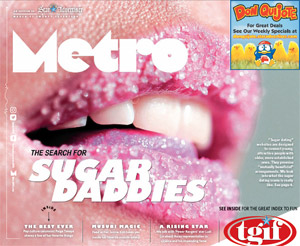Money Matters
Money is constantly on my mind in this delightful season of bargains and sales. It just flows straight out of my wallet directly into the retail abyss. I should have more control over my urges to spend, but I just can’t help it. It just happens and before I know it, I have significantly less money than I did before. Though I love being able to spend my money on the things that I want (and need), I should probably decide to invest this money into something worthwhile. I’ve heard that cryptocurrency has increased in popularity over recent years, and the idea of looking into these antminer z15 buy options could help me to increase my income by mining and trading any currencies that I find. When you put it like that, that’s a great idea! One to think about for the future I think.
Whilst all this spending doesn’t do any favours for my bank account, I’m sure that the businesses with whom I’m spending my money will be glad to see that they are generating more profit and revenue. I just hope that they have a sufficient solution for business online banking that they can introduce to ensure that they can effectively view their account transactions and auto transfers between accounts, as this will make their lives so much easier when it comes to seeing how much money they have made that day.
And the way I’ve been spending my money recently, it won’t come as a surprise if all this money was mine. Thus, I had a few scattered thoughts about the intersection of personal finance and technology to share in this post-Black Friday wasteland.
Budget magic
Metro‘s social media manager Nicole Kato showed me her budget spreadsheet the other day and it was amazing. Meticulously categorized and broken down – she even has a category for pet expenses and future illness – I marveled at her very adult, very methodical approach to financial stability.
I, on the other hand, spent the majority of that time ignoring all of the different wealth management strategies she had shared with me, and now I realize that this was probably a bad idea. It would be hard for me to do this since I don’t even balance my checkbook on the grounds that I can always just look online to find how much money I have.
Technology – and the miracle of online banking – makes life easy that way, but I realized it also makes me curiously ignorant of the transactions that produce that one-line balance. Sure, I can pay all my bills, put 10 percent of every paycheck into a retirement account and never dip into my savings to cover my debts, but … how much do I spend every month? Should I be cutting back? (I subscribe to like four different TV streaming sites. OK, I definitely should be cutting back.)
The question makes me nervous and requires too much reality to answer, so I haven’t dealt with it yet, which is why this section is not going to end with a recommendation of a good budget website.
Plastic vs. paper
When I was a little kid, my grandpa used to sagely tell me that paper money was better to carry than plastic, simply because it was harder to spend. I thought that was silly until I got my own credit card seven years ago.
It is hard to spend real cash. On the rare occasions I remember to go to the ATM, I find every excuse in the book to just shift aside what precious bills I have accumulated in my wallet and instead whip out my trusty card (whose numbers I have memorized for easy online shopping). However, when I do decide to use cash, I’ll often go looking for an ATM by checking out the Atlantic Union Bank’s list of branches and ATMs – visit website to see for yourself.
I noticed it most acutely recently when I was buying a bus pass. I had calculated that it would cheaper to buy a monthly pass than continuing to pay $2.50 per trip. But peeling off those three $20 bills was tough, regardless of my solid and irrefutable math. That’s so much money, I irrationally thought. Is it really cheaper to take the bus? (Of course it is, because when you have a car, you pay your insurance by check and stick your card into the gas pump and click away – and think nothing of it.)
Numbers on a screen, a thin strip of plastic – they just don’t feel like money, in an alarming way. It’s an idea, and no one feels bad when they throw away ideas on a really cute $250 purse when they should probably be saving money instead.
This is 100 percent how the Great Recession started.
STAFF WRITER PAIGE TAKEYA IS TEMPORARILY FILLING IN FOR CHRISTA WITTMIER. FOLLOW PAIGE ON TWITTER @LORDMAYOCLOUD. CHRISTA’S SUPERTECH COLUMN WILL RETURN SHORTLY.

